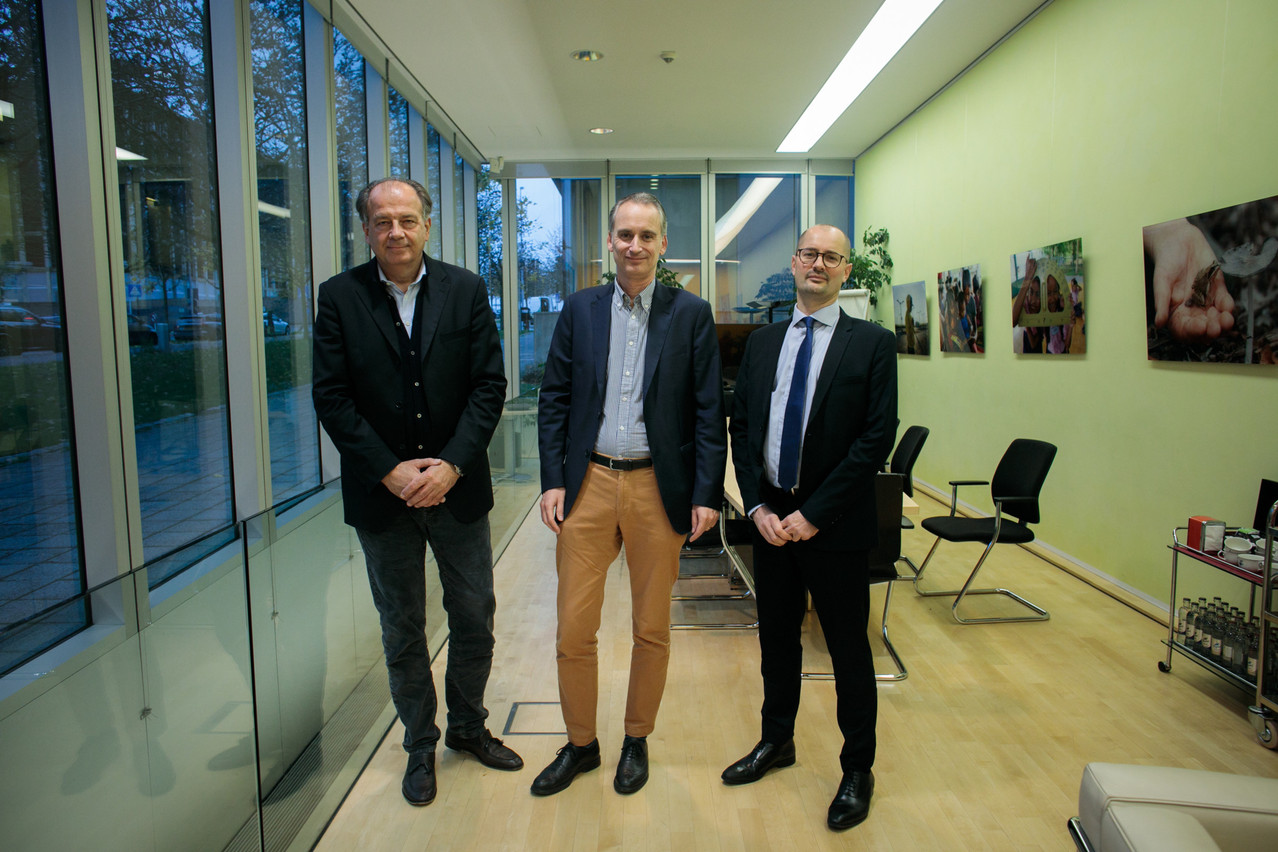The study was launched at the initiative of the Depositary Banking Cluster, part of the Luxembourg Bankers’ Association (ABBL). All depositary banks with a banking licence participated. , president, and Christian Dominique and Éric Guerrier, vice presidents of the Depositary Banking Cluster, said they were delighted with this 100% participation rate. “The idea was to measure the impact of this business, which is much less well known than private banking, but which is one of the pillars of banking activity in Luxembourg,” said Claus.
Read also
The job of custodian is in itself an easy one. It is simply a matter of holding clients’ financial assets in securities accounts. “It is the equivalent of a cash account for financial instruments. Unlike private banks, there are no services associated with this custody, such as advice or management. After the transaction, we will have to settle the transaction--what we call liquidation or settlement--in other words, exchange the cash for the securities purchased, which will be recorded in a securities account.”
This is a traditional banker’s job and is not specific to any one category of client, unlike the custody business. It is a fairly mature position in terms of processes with a fair amount of automation. In general, its execution is entrusted in banks to back-office departments, whereas the depositary business, given its singularity, is rather entrusted to specialised teams.
Depositaries serve investment funds
The depositary business line applies to a very specific type of client: investment funds, which are provided with broader services than custody.
“The depositary banker is a kind of watchdog, an additional protection for the investor,” explained Claus, who is also CEO of European Depositary Banking. This is also a European specificity. American funds are not required to appoint one. “There are already many people protecting the investor: the CSSF, the auditor, the board of directors, the manager, etc. The added value of the depositary is that it has a day-to-day view of what is going on in a fund because all the transactions pass through our books. We are in a much better position to see if there is an error or if there is something suspicious going on. We secure the holding.”
While the custodian’s job is limited to verifying the assets that the fund holds directly, the custodian must also monitor all the fund’s operating processes that are handled by the other service providers--calculation of net asset value, valuation of assets, control of investment processes, payment of dividends, etc. All of these processes come under the custodian’s supervision. The mandate of the custodian is carried out with very tight controls and particularly precise regulatory requirements. “In a few years, we have gone from regulations based on general principles to very prescriptive regulations.”
Specific and healthy businesses
According to the study, the banks active in the sector had €6.5trn worth of assets in their custody business at the end of 2021. This represented an increase of 22% over one year, “mainly due to the performance of the market.” This growth is linked to the dynamism of the investment fund industry in France.
Growth is also on the cards for custodians, with assets under custody reaching €5.5trn (+15%). And Claus made an important point: these are separate amounts, specific to each business line and do not overlap. “This is a mistake that many people make and which leads to an underestimation of the importance of the business by half. For me, the real value of the study is there.”
Assets managed by non-bank custodians were excluded from the scope of the study. While bank custodians are authorised by the CSSF and deal with listed assets, non-bank custodians are specialised in private markets. IQ-EQ and Alter Domus are two of the best known.
The two markets are highly concentrated: the top ten players hold about 78% of assets under custody in one sector and about 88% of assets under custody in the other.
In terms of staffing levels, the figures are constant year-on-year with the equivalent of 953 full-time employees working in custodian oversight functions and 1,204 in custody and safekeeping operations, representing around 10% of total banking staff working in Luxembourg.
Jobs with a future
For the future, and despite the current economic and geostrategic clouds and the planned overhaul of the Ucits and AIFM directives, Claus, Dominique and Guerrier are optimistic about the future of these two professions.
Firstly, because the fund industry is an important base. “In the long term, our assets to be held and supervised as custodians will continue to grow,” stated Guerrier, head of custodians at the cluster.
The second factor is the evolution of clients’ investment preferences, which are turning more towards the world of alternative investments. “This evolution in clients’ preferred asset classes is changing our business and opening up new markets,” said Dominique.
As for blockchain and DLT technologies, Dominique does not see them as a danger. “We don’t think DLT will be used on processes where we already have an excellent track record of standardisation and streamlining. On the other hand, on assets such as private equity or real estate where it has not been possible so far, we expect it to add a lot of value.”
Read the original French version of this article on the site.
This article was published for the Paperjam+Delano Finance newsletter, the weekly source for financial news in Luxembourg. .
